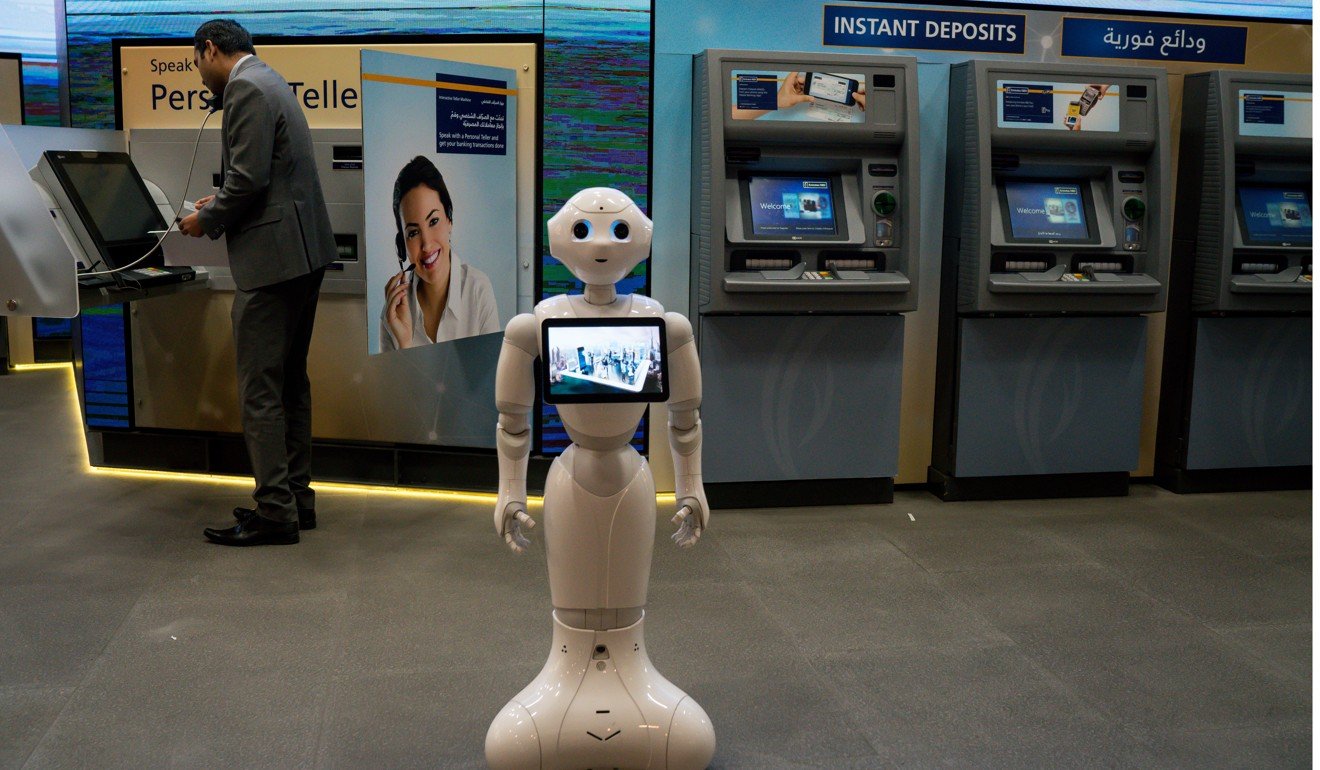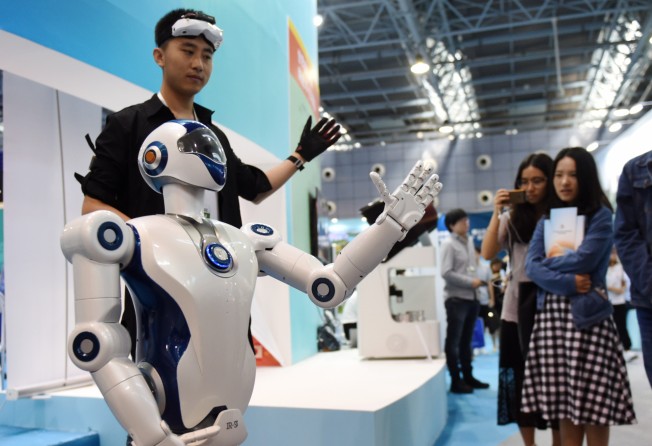
Why the world needs benevolent robots that can learn to love and be loved
David Hanson says humankind can have a better future if the artificial intelligence and robots we develop do not just calculate, but also learn emotional intelligence in the same way that babies do

Robots and intelligent machines are progressing at unprecedented rates, demonstrating great recent leaps in intelligence, perception, expressiveness and the ability to navigate the real world. Humanoid social robots are becoming more common and more diverse. They will soon become a common form of interface to AI, and will be refined into a new kind of computer animation, such as for movies, with the difference of being physically embodied.
Humans have an innate preference for faces and to empathise with other humans, therefore social robots designed with pleasing aesthetics and a full range of human expressions are better positioned to inspire trust and empathy from the people with whom they interact. These robots will gain faster acceptance, develop richer interactions with people and drive better results from these interactions, creating significant utilisation, social and commercial value. I believe we can make machines truly alive one day, and this is key to generalising artificial intelligence and making robots capable of operating autonomously. These trends in lifelike robots will lead us to the point where the technology will be literally alive, self-sufficient, feeling, aware. This will change history.
The Chinese government has set a goal of becoming a global innovation centre for AI technology by 2030. This is very positive news, as it will bring more talent, resources and competition to AI development globally, which is a great thing for the industry.
However, companies developing AI and robotics need to constantly review their approaches, and where they invest their resources. Creating intelligent machines is not just about engineering the algorithms. We need to get the right data into those algorithms for the algorithms to get really smart. Making AI understand people requires the right algorithms and the right data. You can’t just feed the algorithms with data from the web. That’s not the way that baby humans or baby animals learn.

We want our AI to be as smart as humans, so we need them to learn like babies do. Babies learn from physically interacting with the world and from face-to-face interaction with people. If you deprive babies socially, they suffer and don’t develop correctly. So, if we develop these bio-inspired intelligent algorithms and give them this rich social data, letting them interact with the world through this rich array of sensors, physically, through the Internet of Things and through social interactions, they will grow smarter faster. They will grow up to be socially well adjusted and live well with humans. This is why I want to give robots human-like forms.
We wish to dramatically improve people’s everyday lives with highly intelligent robots that teach, serve, entertain and provide comforting companionship. This means the robots must learn to love and learn what it means to be loved, so they are capable of friendship and familial love.
Watch: Robot dentist performs world’s first implant surgery in China
Ultimately, I seek to realise kind and wise genius machines
Even further, we want robots to love in a bigger sense, in the sense of the Greek word agape, meaning higher love. This will create a deep bond between humans and robots and assure a benevolent AI in a shared future with humanity. Ultimately, I seek to realise kind and wise genius machines, who will collaborate with us to solve the world’s great problems, and realise an unimaginably wondrous future. Developing benevolent AI/robots is not just a nice thing to do, but a prerequisite, and we must work together not just as an industry, or a nation, but as a species, to create more capable, and also “good” AI/robots to realise the fullest potential of this human invention.
David Hanson, PhD, is founder and CEO of Hanson Robotics Limited